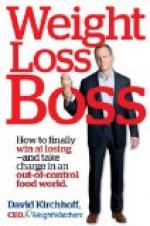A Tommy is reading a paper in a muddy trench. Suddenly he scowls, laughs rather fiercely and calls to his pal, jerking his head as a sign to him to hurry. “’Ere Bill, listen to wot this ’ere cry-baby says. ‘E thinks we’re losin’ the bloomin’ war ’cause ’e didn’t get an egg for breakfast. Losin’ the war! A lot ‘e knows abart it. A blinkin’ lot ’e’s done either to win or lose it. Yus, I don’t think! Thank Gawd, we’ve none of ’is sort up front.”
To men who have gazed for months with the eyes of visionaries on sudden death, it comes as a shock to discover that back there, where life is so sweetly certain, fear still strides unabashed. They had thought that fear was dead—stifled by heroism. They had believed that personal littleness had given way before the magnanimity of martyrdom.
In this plea, then, for a firmer Anglo-American friendship I address the civilian populations of both countries. The fate of such a friendship is in their hands. In the Eden of national destinies God is walking; yet there are those who bray their ancient grievances so loudly that they all but drown the sound of His footsteps.
Being an Englishman it will be more courteous to commence with the fools of my own flesh and blood. Let me paint a contrast.
Last October I sailed back from New York with a company of American officers; they consisted in the main of trained airmen, Navy experts and engineers. Before my departure the extraordinary sternness of America, her keenness to rival her allies in self-denial, her willing mobilisation of all her resources, had confirmed my optimism gained in the trenches, that the Allies must win; the mere thought of compromise was impossible and blasphemous. This optimism was enhanced on the voyage by the conduct of the officers who were my companions. They carried their spirit of dedication to an excess that was almost irksome. They refused to play cards. They were determined not to relax. Every minute they could snatch was spent in studying text-books. Their country had come into the war so late that they resented any moment lost from making themselves proficient. When expostulated with they explained themselves by saying, “When we’ve done our bit it will be time to amuse ourselves.” They were dull company, but, in a time of war, inspiring. All their talk was of when they reached England. Their enthusiasm for the Britisher was such that they expected to be swept into a rarer atmosphere by the closer contact with heroism.
We had an Englishman with us—obviously a consumptive. He typified for them the doggedness of British pluck. He had been through the entire song and dance of the Mexican Revolution; a dozen times he had been lined up against a wall to be shot. From Mexico he had escaped to New York, hoping to be accepted by the British military authorities. Not unnaturally he had been rejected. The purpose of his voyage to the Old Country was to try his luck with the Navy. He held his certificate as a highly qualified marine engineer. No one could persuade him that he was not wanted. “I could last six months,” he said, “it would be something. Heaps of chaps don’t last as long.”




